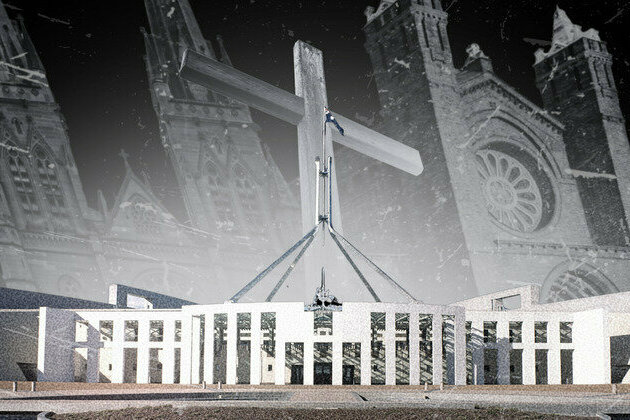Move FM Australian News

The rise of right-wing Christian populism and its powerful impact on Australian politics
May 1, 2025As Australians cast pre-poll votes in record numbers, it is not only political parties and candidates who are trying to influence votes.
Australian Christian Right (ACR) groups have produced “scorecards” that rate party policies according to so-called Christian values. And they have organised candidate forums designed for Christian audiences.
The Plymouth Brethren Christian Church has deployed hundreds of its members to pre-polling booths in marginal seats to campaign for the Coalition.
The ACR is a diverse movement of individuals, groups and churches that share traditional, fundamentalist approaches to the Bible and church teachings. It includes the Australian Christian Lobby, which has a long history of political activism in Australia and of engagement with the global Christian right.
In our research we examined how the ACL has adopted right-wing populist rhetoric and what the effects might be on Australian politics.
The ACR’s historical focus has been on abortion, euthanasia, sexuality and marriage. Now it also campaigns on human rights issues relating to gender, religious freedom and freedom of speech.
These interests have seen the ACR connect to global right-wing networks, including the US Conservative Political Action Network (CPAC) and Jordan Peterson’s Alliance for Responsible Citizenship.
For our research, we identified high-profile ACR actors and studied their publicly available texts. We found three intertwined themes of populist discourse. Each one has been given a Christian framing and adapted for the Australian context.
European populists have used this rhetoric to define the Muslim “other” and the threat Islam supposedly poses to Western democratic culture and values.
Australia’s construction as a white British “outpost” gives this ideology its power. It has been used to inspire fear of immigrants.
In Christian right rhetoric, “Western civilisation” is defined by Judeo-Christian values, which are purportedly under threat from an aggressive secularism that would rid society of its moral foundations and undermine the “family”.
This polemic found fertile ground in 2017’s marriage equality debate. LGBTQ+ people and their allies were cast as anti-Christian activists who undermined Western tradition. A point made by former prime minister Tony Abbott when he addressed the anti-gay Alliance Defending Freedom in New York in 2018:
the campaign for marriage in my country has mobilised thousands of new activists; and created a network that could be deployed to defend Western civilisation more broadly and the Judeo-Christian ethic against all that’s been undermining it.
The Australian Christian Right divides people into the traditional moral community that upholds family values, and the politically correct woke elites who allegedly threaten the Christian values that have shaped Australia.
In opposing marriage equality, religious freedom became the ACR’s primary weapon of choice.
Former Liberal Party senator and committed conservative Christian Amanda Stoker applies a right-wing populist approach to the movement’s opposition to transgender rights:
The new elite – exclusive and “woke” – in fact has disdain for the traditional family, actively seeking to break it down with new genders, new family forms, and greater dependence on the state for the roles that family used to play in education, in sharing values, and in care for those in times of need.
This rhetoric aims to position the ACR as arguing on behalf of all moral people who uphold traditional values, and all reasonable Australians who value freedom of religion.
The mythology of a “white Christian Australia” dates to the White Australia immigration policy, and remains a powerful force in Australian politics.
In contemporary Australian populism, it has found form in the identification of Indigenous people as the subject of alleged preferential treatment. In contrast, non-Indigenous Australians are portrayed as victims suffering reverse racism. It has now been given a Christian right twist.
During the referendum campaign for the Voice to Parliament, the ACR joined the far-right activist group Advance to argue the case for a “no” vote.
In its opposition to constitutional recognition, the ACR adopted two themes of the “no” campaign: Indigenous people don’t need the Voice, and it would divide Australians on the basis of race. It then added a third by doubling down on the progress made in the marriage equality debate with “religious freedom” rhetoric.
Lyle Shelton, head of Christians for Equality, claimed the Voice would be a “lever for anti-Christian” ideology.
And in a collection of essays on the “religious” perspective of the Voice proposal, a number of authors, including ACR leader Dave Pellowe, argued the Voice would breach religious freedom by imposing Aboriginal religious beliefs and practices on the entire country.
Since last Sunday’s leaders’ debate, the populist trope of “saving Australia from racial division” has been in plain sight. Consistent with his anti-Voice position, Opposition Leader Peter Dutton declared that acknowledgement of Country has been “overdone“.
Christian political party Family First echoed his concerns, saying the ritual means:
citizens don’t have equal standing in this nation.
When the three thematic strands are woven together, the ACR’s populist vision for a “back-to-a-better” Australia becomes clear.
The mutually reinforcing rhetoric of the populist right and the Christian right creates a distinctly Australian agenda that has dangerous implications for many people, especially those who are already marginalised.


